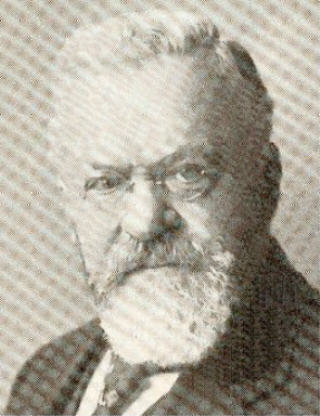- Carl Swartz
infobox Prime Minister
name=Carl Swartz
order=14thPrime Minister of Sweden
term_start =March 30 1917
term_end =October 19 1917
predecessor =Hjalmar Hammarskjöld
successor =Nils Edén
birth_date =birth date|1858|6|5|mf=y
birth_place =
death_date =death date and age|1926|11|6|1858|6|5|mf=y
death_place =
party=
spouse=
alma_mater =Uppsala University ,
University of Bonn Carl Johan Gustaf Swartz (
5 June 1858 –6 November 1926 ) was a Swedishright-wing politician who served asPrime Minister of Sweden from30 March 1917 to19 October 1917 . He also served asMinister for Finance from 1906 to 1911.He married Dagmar Lundström in 1886, with whom he had three children, Erik, Brita and Olof.Biography
Carl Swartz was born on
June 5 1858 inNorrköping ,Sweden , the son of factory-owner Erik Swartz and wife Elisabeth Forsgren. After completing studies inUppsala andBonn , he returned to Norrköping to run the family business, tobacco producersPetter Swartz . He came to play a large role in his home town, not least culturally. He was Chairman of the Board of Directors of, amongst others, Sweden's privateCentral Bank between 1912 and 1917. In 1917, he became a university chancellor.As Minister for Finance between 1906 and 1911, he implemented a number of reforms including integrated income- and property tax, which both became progressive. With the amalgamation of the right-wing groups of the Riksdag's lower chamber, Swartz became a member of the inner council of the newly-formed "Nationella Partiet" (English: The National Party) in 1912.
During
World War I he was a key figure in the Riksdag in his capacity as Chairman of the Standing Committee of Supply between 1915 and 1917. With the fall, due to external pressures and internal disharmony, of the government of non-party alignedHjalmar Hammarskjöld , KingGustav V called on the party-political conservative Swartz to become Prime Minister. He accepted the appointment more out of a sense of duty rather than personal desire for the post. The new government's foremost task was to exercise a calming influence on the bourgeois which was worried, in anticipation ofMay 1 ,1917 , by rumours that theFebruary Revolution in Russia would spread toStockholm .Swartz was generally considered as a moderate and reasonable conservative, in the style of an old-fashioned and thoughtful mill-owner. He forbade
bourgeois defence guards in advance of the May 1 1917 demonstrations, in return for the Social Democratic Party's assurance that they would be responsible for maintaining order. Without this political concession, the confrontations could have escalated during the month of May and resulted in a domestic political crisis.Miscontent stemmed mainly from the fact that the people were living on the brink of starvation. Hunger riots, rather than the political demand for voting rights, lay behind the demonstrations. The situation calmed with the beginning of the
potato harvest in early summer. Swartz also quickly concluded negotiations with theTriple Entente powers, principallyGreat Britain , on imports from the west, which Hammarskjöld had prevented.The Social Democrats used the hunger riots to put pressure on the
right-wing government , with demands such asuniversal suffrage ,women's suffrage and removal of the 40-degree voting scale in municipal elections. The government was divided on these issues. Leader of the left-wing faction,Minister for Public Administration Oscar von Sydow and Minister for FinanceConrad Carleson agreed with the Social Democrats' and Liberals' proposals. They threatened to resign if Swarz agreed with Minister for Foreign Affairs Arvid Lindman's demand to maintain thestatus quo . The Minister for Finance was backed by the industry, which wanted an end to the debacle. Swarz was irresolute and felt under pressure from his opponents and his solution was to wait for the spring election. This action was historic: he became the first leading conservative to follow the parliamentary principle that the people - not the king - should choose the government.Gustav V attempted for a long time to avoid a breakthrough for parliamentarianism, but his wish to allow Swartz to continue, despite the left-wing parties' success in the 1917 election was undermined by the involvement of Swartz's son in a
black market eering scandal, a violation of existing rationing.Carl Swartz was also an eminent municipal figure and a generous philanthropist. In 1912, he donated Villa Swartz to the town of
Norrköping , as accommodation for alibrary andmuseum . He died in Stockholm onSeptember 6 1926 .
Wikimedia Foundation. 2010.
